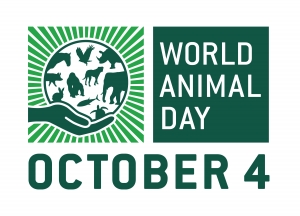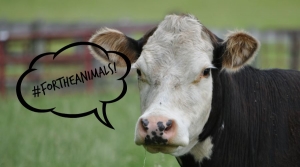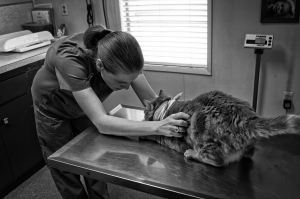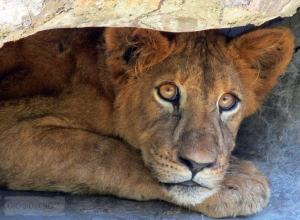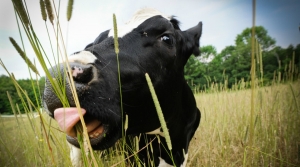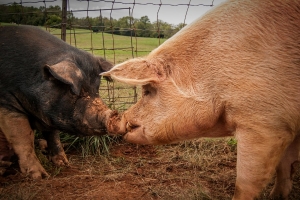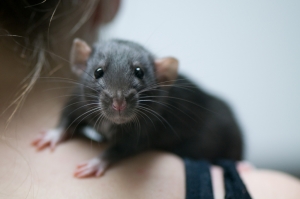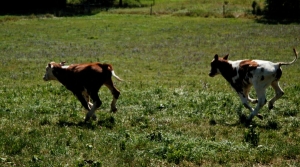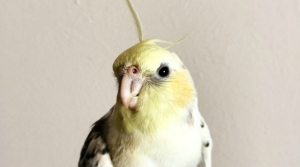
Jessica Bridgers
Jessica is the Executive Director at World Animal Net. Having received a B.S. in biology with minors in chemistry and anthropology from the University of New Mexico, she combines a scientific background with a passion for animal protection. She completed her M.S. in Animals and Public Policy from Tufts University and internships with Humane Society International, Animal Protection of New Mexico, and the New England Anti-Vivisection Society before arriving at World Animal Net. In her free time, she volunteers with horse and wildlife rescues.
Four Reasons Your Organization Should Join the World Animal Day Movement
World Animal Day is now upon us! Every October 4, advocates from around the world gather together in support of World Animal Day. Recently, Caroline Ruane of the official World Animal Day headquarters was kind enough to share with us how World Animal Day began, and what it has accomplished around the world. You can read more about this incredible work here and on the World Animal Day website, but for those who are hesitant about why their organization should celebrate World Animal Day, here are four reasons why World Animal Day benefits not only animals and the global animal protection movement, but how your organization can benefit as well:
Social Media for #AnimalProtection
Most of us are probably already social media users, and most of the organizations we work for and run already have a presence on social media. But are we using this presence to further our organization’s missions or campaigns as effectively as possible?
Three Times Veterinary Organizations Stood Up for Animals this Year
Veterinarians are thought of by many as protectors of animals, and indeed, when it comes to our cats, dogs, and other companion animals, few others have our animals’ interests in mind more than the family veterinarian. Veterinarians are able to help us correct behavioral problems, choose successful treatments, and advise us during difficult end of life decisions. They are a trusted resource on how to give our companion animals the best lives we can.
How Advocates Can Educate the Public About Conservation in a Post-Cecil World
As many readers are more than well aware, a few weeks ago the death of Cecil the lion sparked outrage across the world. Cecil’s death also put conservation and hunting groups which support trophy hunting as a means to raise funds for conservation on the defensive, with numerous editorials bemoaning the outrage appearing in the days following Cecil’s death.
What Advocates Can Learn from The Ghosts in Our Machine Impact Report
The last few years have seen the scope and variety of documentaries about humans’ relationship with animals grow and mature, moving beyond cliché diatribes filled to the brim with shocking images and nauseating footage which many people, myself included, avoid at all costs. More recent documentaries have focused on compelling narratives which engage, enlighten, and empower their viewers to learn about the issues and take action. These documentaries have reached millions of viewers through theatrical releases and repeated screenings on major television networks.
This Little Piggy: A Few Things Animal Advocates Should Know About Pigs
Chimpanzees. Elephants. Dolphins. Perhaps dogs. These are the animals that many people, including animal advocates, envision when thinking of the “smartest” animals. However, this list, accurate as it may be, is by no means inclusive. There are in fact other animals who can hold their own in scientists’ tests for intelligence and emotion, but who are all too often overlooked simply because of the role they play in human society.
Book Review: Animal Impact by Caryn Ginsberg
“This book is so desperately needed in our movement. We need to blend passion with professionalism, and this book is going to help get us there.”
“It’s the practical handbook every activist should read.”
“This book is the definitive ‘how to’ for all animal advocates.”
These are just some of the things that have been said about Animal Impact: Secrets Proven to Achieve Results and Move the World by Caryn Ginsberg, and after reading the book, I have to agree with them!
Three Times Animal Sentience Made the News This May
At World Animal Net, we define sentience in our forthcoming Model Animal Welfare Act as the capacity to perceive or feel things--more specifically, sentient beings share with us consciousness, feelings, emotions, perceptions – and the ability to experience pain, suffering, fear, distress and states of well-being. Animal sentience is a major underpinning for nearly all the philosophies that explain why animals and their interests deserve consideration and flies in the face of traditional Western views of animals as “automatons” who feel no pain and do not suffer, and consequently are “things” that humans can do with as they like. While animal advocates have long been criticized for their views as being based in passion and not rationality, science is now confirming what advocates have always known.
Encouraging Positive Actions for Animals: What Advocates Should Know About Motivating the Average Person
As animal advocates faced with difficult and heart-wrenching problems on a daily basis, it can become all too easy to think that the people whose behavior we seek to change operate using the same type of reasoning that we do. When we begin thinking that everyone is operating using the same basic rationale it becomes increasingly difficult to understand why most people, when confronted with the same information, do not adopt the same behaviors that we ourselves have adopted.
Rats Understand & React to Facial Expressions of Other Rats, but What About Birds?
Several years ago, while working on my undergraduate degree in biology, I took a course in vertebrate zoology. This course required the rote memorization of hundreds of traits about both extinct and extant (still living today) families of vertebrates, from the solemnly repulsive hagfish to our familiar and celebrated mammals. One of the traits that was listed for our memorization was that birds do not possess facial expressions.

